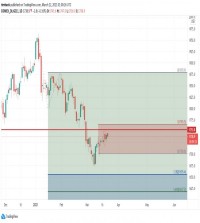|
By: Bailey McCann, Private Equity Strategies As private equity transactions hit 2007 levels, some investors are starting to worry about risk. According to a Financial Times report released yesterday, buyout values are up some 25 percent in the first half of the year and worldwide M&A activity is valued at $2.4 trillion year-to-date in 2017, an increase of two percent over last year. On the surface, it may seem like investors are poised to cash in, but easy financing has prompted some industry watchers to warn about risk. Earlier this month, Tom Wyss, a Senior Consultant on Aon Hewitt’s private equity team wrote a short update on the growing use of lines of credit by GPs. He cautioned investors to take a closer look at the fine print during due diligence, as some GPs have started using lines of credit to finance operations and initial investments ahead of their first capital calls to investors. By calling capital later on in the process, GPs can inflate a fund's Internal Rate of Return (IRR), making it hard to assess performance. "It is important to strip out the effect of credit lines when examining the performance of prior funds as usage will increase the IRR performance of prior funds both on an absolute and possibly on a relative basis," Wyss says, adding that when investors are assessing funds within the same vintage year, it is critical to note which firms use lines of credit and which do not, in order to maintain an apples to apples comparison. Using lines of credit may also mean that GPs earn their carry sooner than they otherwise would. Typically, GPs gain access to carried interest once the IRR has cleared a certain threshold known as the hurdle rate. If a GP has used a line of credit early on in the fund lifecycle, he may make the hurdle rate faster without much in the way of real performance to show for it. Peer pressure As more GPs come to rely on lines of credit, it puts pressure on those that do not. Investment consultants often measure peer groups of funds using aggregate data, which could put GPs with lower initial IRRs at bottom of a group ranking, penalizing those GPs that don't use lines of credit at the start of a fund lifecycle. Investors have been dealing with a similar trend in the leveraged lending space for several years. So-called covenant-light loans have regained widespread use after hitting a brief speedbump during the immediate aftermath of the financial crisis. So much so, that a recent Bloomberg piece notes that there is now a stigma around safety. Investors use covenants as a check on the loan to ensure that they are repaid and so that they can step in if it starts to look like a company may default. In the current environment, if a deal comes through with covenants there is a concern that something is already wrong. For investors in big funds and firms, the impact of these trends may be minimal as performance can be easier to assess and the risk of default is less likely. But in the mid-market and below, consultants like Aon's Wyss advise caution. In his update, Wyss says that investors may be able to guard against inflated IRR's by basing the hurdle rate on a combination of net fund level IRR and multiple. Clawback provisions should also be strengthened. Investors also need to be very clear about what additional costs they might incur from fewer capital calls in the case of private equity funds and from fewer capital preservation rights in leveraged lending. If GPs move together when they do capital calls, investors could be faced with a significant outlay in order to meet requests that happened at the same time. There are also tax implications to consider if calls and distributions across funds start happening in lockstep. On the lending side, it may be more difficult for investors to recover losses if they bow to pressure to sign away covenant rights, especially in smaller companies where default risk is higher. | |
|
This article was published in Opalesque's Private Equity Strategies our monthly research update on the global private equity landscape including all sectors and market caps.
|
Private Equity Strategies
As Cheap Money Reigns, Private Equity Investors Eye Risks |
|





 RSS
RSS










